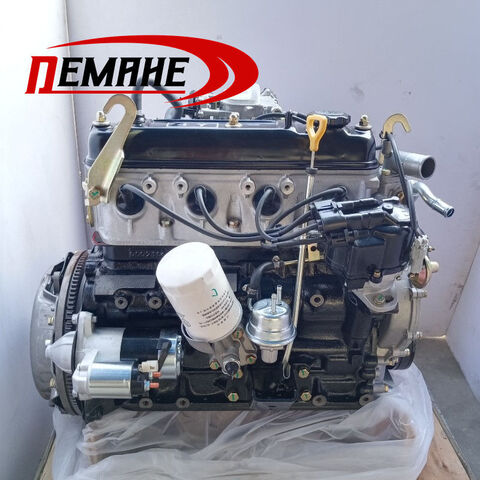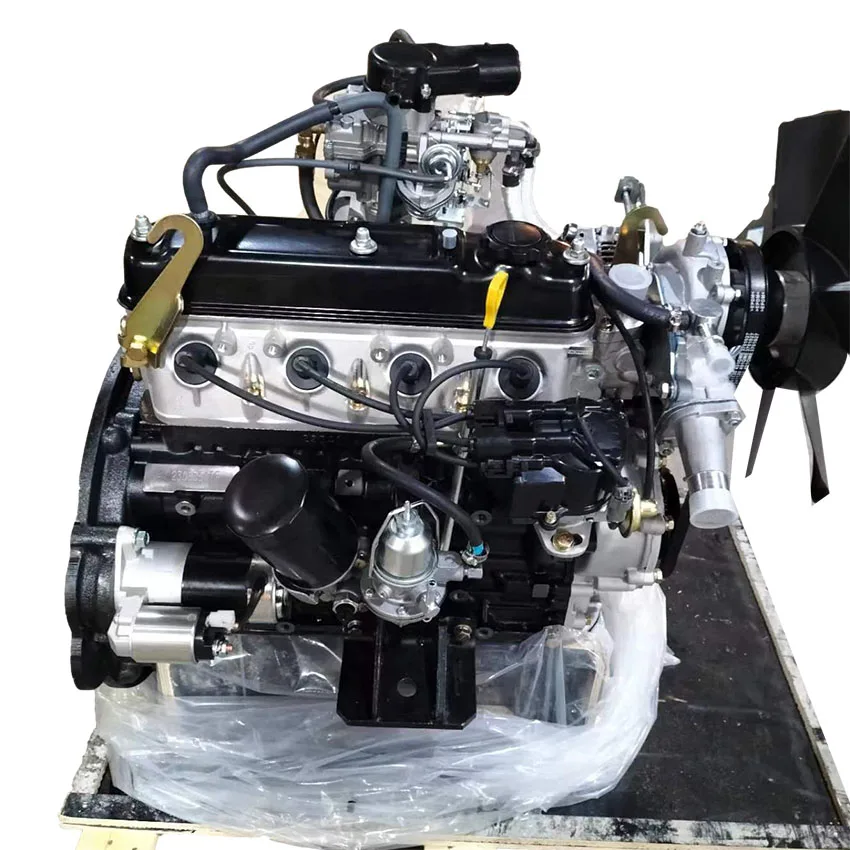Top Modifications to Enhance the Performance of Your 4Y Engine
Discovering the Various Sorts Of Engine: Which One Fits Your Needs?
In the pursuit to figure out one of the most ideal engine kind for your details demands, it is vital to evaluate the unique characteristics and benefits of each option offered. Internal combustion engines remain to control as a result of their integrity, while electrical engines are acquiring traction for their sustainability. Crossbreed engines offer a versatile compromise, and diesel motor stick out for their power in requiring applications. Furthermore, different fuel engines present innovative remedies, albeit with certain constraints. Comprehending your priorities will be crucial in this decision-making process, bring about an exploration of factors that might affect your option.

Internal Burning Engines
Interior burning engines (ICEs) are the foundation of modern transportation, powering a vast selection of lorries from cars to airplanes. These engines operate on the concept of transforming fuel into power via a collection of controlled explosions within a burning chamber. The most common kinds of ICEs consist of gas engines, diesel engines, and rotary engines, each made to fulfill details performance and efficiency demands.
Gas engines usually use stimulate ignition, while diesel engines count on compression ignition, causing distinctive differences in fuel effectiveness and power result (4y engine). Rotary engines, or Wankel engines, provide a compact style and smooth procedure, yet are less typically used in mainstream applications
ICEs have actually undergone substantial advancements in technology, including the intro of turbocharging and gas shot systems, which enhance overall performance and efficiency. Regardless of their effectiveness enhancements, ICEs face boosting scrutiny due to their environmental impact, particularly pertaining to greenhouse gas discharges. As the auto sector develops, the future of ICEs stays a topic of debate, stabilizing performance, efficiency, and ecological considerations. Nonetheless, they continue to play a critical duty in worldwide transportation framework.
Electric Engines
As problems regarding ecological sustainability and fossil fuel dependency grow, electric engines have emerged as a compelling alternative to inner burning engines. These engines make use of electric motors powered by batteries or fuel cells, offering a cleaner and much more effective motive powers.
Among the main advantages of electrical engines is their decreased emissions. Unlike traditional engines that shed nonrenewable fuel sources, electrical engines produce absolutely no tailpipe discharges, substantially lowering air contamination and adding to improved public health. Furthermore, the effectiveness of electric motors frequently exceeds that of inner burning engines, converting a greater percentage of energy from the source of power right into functional energy for movement.
Electric engines are likewise noteworthy for their quiet procedure, making them perfect for city settings. 4y engine. The simplicity of their style results in fewer moving parts, which can cause decreased upkeep prices and boosted dependability with time
Nonetheless, challenges stay, including battery manufacturing effects, charging infrastructure, and variety limitations. Despite these obstacles, the expanding financial investment in electric vehicle innovation and renewable resource sources factors toward a promising future for electric engines, positioned to play a crucial role in the change towards sustainable transport.
Hybrid Engines
Mixing the benefits of both electrical and conventional interior burning engines, hybrid engines stand for a functional option in the quest for efficient and lasting transportation. These engines combine a fuel or diesel motor with an electrical motor, enabling boosted fuel performance and minimized discharges contrasted to standard vehicles.
Hybrid engines operate in a number of settings, making use of the electrical motor for low-speed driving and the internal burning engine for greater rates or when more power is needed. This vibrant operation not just boosts fuel economy but additionally adds to a smoother driving experience. Regenerative stopping is an additional crucial feature, catching energy commonly lost throughout stopping and rerouting it to charge the battery.

As consumers increasingly prioritize eco-friendliness, crossbreed engines stick out as a useful option, offering a reliable balance of performance, efficiency, and environmental responsibility. This adaptability makes them appropriate for urban travelling and long-distance traveling alike.
Diesel Engines
Effectiveness and power are trademarks of diesel motor, which have long been favored for their effectiveness and fuel economic climate. These engines operate the concept of compression check this ignition, where air is pressed to a high temperature prior to gas is infused, igniting it without the need for ignition system. This process allows diesel engines to achieve greater thermal efficiency compared to gasoline engines, equating right into far better fuel gas mileage and reduced carbon dioxide exhausts.
Diesel motor are especially fit for heavy-duty applications such as vehicles, buses, and industrial machinery, where torque and sturdiness are paramount. Their design normally consists of stronger parts to hold up against the greater pressures created throughout procedure, resulting in longer life span and reduced upkeep expenses.

Different Gas Engines
While diesel engines have lengthy dominated the landscape of heavy-duty source of power, alternative gas engines are obtaining grip as viable choices for an extra lasting future. These engines use a selection of gas, such as pressed gas (CNG), lp, ethanol, and hydrogen, aiming to lower greenhouse gas discharges and dependence on nonrenewable fuel sources.
One considerable benefit of alternative gas engines is their possible to lower carbon impacts. For circumstances, CNG engines emit fewer pollutants contrasted to typical diesel engines, making them suitable for urban transit systems and fleets looking for to boost air top quality. Ethanol, derived from biomass, not only minimizes emissions however also supports farming economic situations.
Hydrogen gas cells stand for an innovative development in this realm, offering zero-emission power via a chain reaction between hydrogen and oxygen. Obstacles such as infrastructure advancement and manufacturing expenses stay challenges to widespread adoption.
Conclusion
In final thought, choosing the suitable engine kind requires careful consideration of specific demands and preferences. Internal combustion engines supply reliability, while electric engines focus on sustainability and decreased maintenance. Hybrid engines integrate the benefits of both, boosting performance, whereas diesel engines give remarkable power and torque for heavy-duty applications. Different fuel engines present eco-friendly choices, albeit with potential infrastructure difficulties. Inevitably, a detailed evaluation of driving behaviors and ecological worths will assist in a notified decision pertaining to engine option.
Hybrid engines use a flexible concession, and diesel engines stand out for their power in requiring applications. The most usual kinds of ICEs consist of fuel engines, diesel engines, and rotating engines, each created to satisfy certain efficiency and efficiency demands.
Unlike traditional i loved this engines that melt fossil gas, electrical engines create zero tailpipe exhausts, dramatically reducing air pollution and contributing to boosted public health and wellness.Hybrid engines run in numerous settings, using the electrical motor for low-speed driving and the inner burning engine for greater rates or when more power is needed. Hybrid engines integrate the benefits of both, improving effectiveness, whereas diesel engines supply exceptional power and torque for heavy-duty applications.